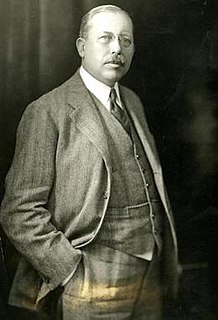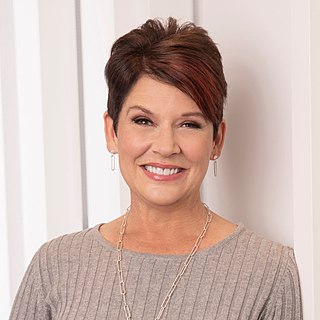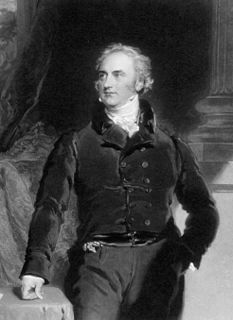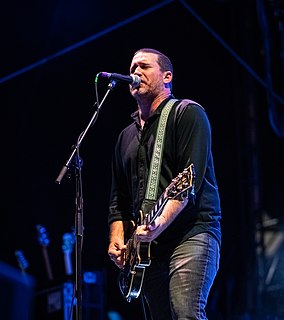A Quote by James Truslow Adams
There are obviously two educations. One should teach us how to make a living and the other how to live. Surely these should never be confused in the mind of any man who has the slightest inlinkng of what culture is. For most of us it is essential that we should make a living... In the complications of modern life and with our increased accumulation of knowledge, it doubtless helps greatly to compress some years of experience into far fewer years by studying for a particular trade or profession in an institution.
Quote Topics
Accumulation
Any
Complications
Compress
Confused
Culture
Essential
Experience
Far
Fewer
Greatly
Helps
How
Increased
Institution
Knowledge
Life
Live
Living
Make
Man
Mind
Modern
Modern Life
Most
Never
Obviously
Other
Our
Particular
Profession
Should
Slightest
Some
Studying
Surely
Teach
Trade
Two
Us
Years
Years Of Experience
Related Quotes
I do not accept any absolute formulas for living. No preconceived code can see ahead to everything that can happen in a man's life. As we live, we grow and our beliefs change. They must change. So I think we should live with this constant discovery. We should be open to this adventure in heightened awareness of living. We should stake our whole existence on our willingness to explore and experience.
Whatever an education is, it should make you a unique individual, not a conformist; it should furnish you with an original spirit with which to tackle the big challenges. It should allow you to find values which will be your road map through life; it should make you spiritually rich, a person who loves whatever you are doing, wherever you are, whomever you are with; it should teach you what is important, how to live and how to die.
To live means to experience-through doing, feeling, thinking. Experience takes place in time, so time is the ultimate scarce resource we have. Over the years, the content of experience will determine the quality of life. Therefore one of the most essential decisions any of us can make is about how one's time is allocated or invested.
Nothing is known in our profession by guess; and I do not believe, that from the first dawn of medical science to the present moment, a single correct idea has ever emanated from conjecture: it is right therefore, that those who are studying their profession should be aware that there is no short road to knowledge; and that observation on the diseased living, examination of the dead, and experiments upon living animals, are the only sources of true knowledge; and that inductions from these are the sole bases of legitimate theory.
Most of our difficulties, our hopes, and our worries are empty fantasies. Nothing has ever existed except this moment. That's all there is. That's all we are. Yet most human beings spend 50 to 90 percent or more of their time in their imagination, living in fantasy. We think about what has happened to us, what might have happened, how we feel about it, how we should be different, how others should be different, how it's all a shame, and on and on; it's all fantasy, all imagination. Memory is imagination. Every memory that we stick to devastates our life.
We have many years to eat and sleep, but how many years do we have to make a difference in the lives of others? That's the highest calling any of us can have: Living our life so as to intentionally add value to others. But to do this, we have to make ourselves more valuable. We have to keep learning, growing, developing as leaders and taking responsibility for being the change we want to see in the world.
To recognize our bias toward error should teach us modesty and reflection, and to forgive it should help us avoid the inhumanity of thinking we ourselves are not as fallible as those who, in any instance, seem most at fault. Science can give us knowledge, but it cannot give us wisdom. Nor can religion, until it puts aside nonsense and distraction and becomes itself again.
Let's not forget that for thousands of years the institution of marriage has been between a man and a woman. Until quite recently, in a limited number of countries, there has been no such thing as a marriage between persons of the same gender. Suddenly we are faced with the claim that thousands of years of human experience should be set aside because we should not discriminate in relation to the institution of marriage. When that claim is made, the burden of proving that this step will not undo the wisdom and stability of millennia of experience lies on those who would make the change.
Over the years since then though, I couldn't even begin to try and count all the mistakes I've made but also, all the joys I've found while traveling on the road. So in living this kind of lifestyle day in and day out for that many years you learn. You learn a lot about yourself. You learn a lot about how people should be treated and how they should treat each other. For the most part, I've really learned patience, temperament and fairness all around.
How fleeting are the wishes and efforts of man! how short his time! and consequently how poor will his products be, compared with those accumulated by nature during whole geological periods. Can we wonder, then, that nature's productions should be far 'truer' in character than man's productions; that they should be infinitely better adapted to the most complex conditions of life, and should plainly bear the stamp of far higher workmanship?







































